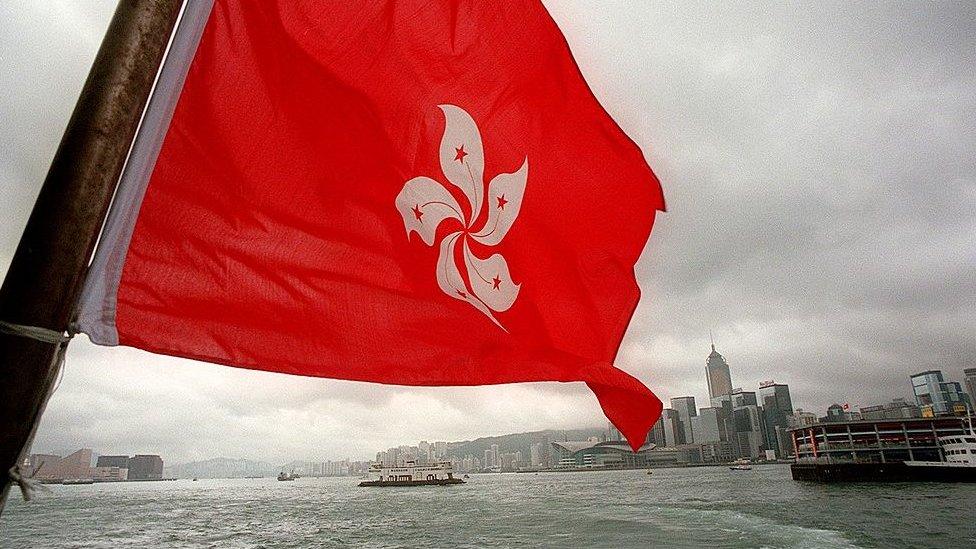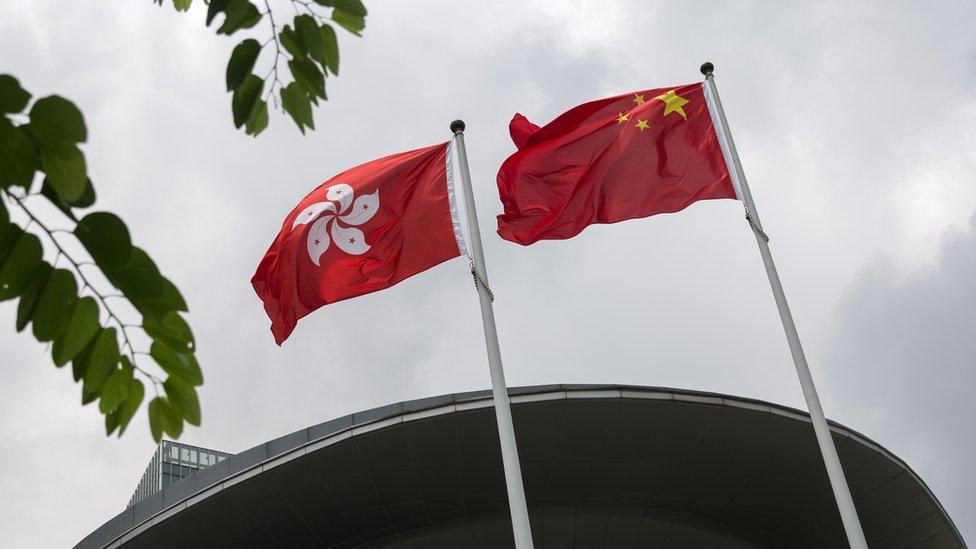Hong Kong sees patriots inducted into new election committee
- Published

Hong Kong was handed back to China in 1997 under a model called "one country, two systems"
An election for Hong Kong's new Election Committee (EC) which only allowed "patriotic" candidates to run has concluded.
The EC is responsible for choosing the city's next leader.
It is the first poll since sweeping reforms to its electoral system were passed. The number of registered voters was also slashed by almost 97%.
Critics had earlier warned the voting reforms were designed to remove all opposition from the city's parliament.
What has changed under the reforms?
The electoral reform law which was passed in May, was designed to weed out "non-patriots". It also saw the EC given new powerful responsibilities, allowing it to nominate all candidates for LegCo - the city's parliament.
This allows for a pro-China panel to vet and elect candidates, which critics said reduced democratic representation.
Only one opposition-leaning candidate running in the election won, with Tik Chi-yuen telling reporters afterwards that "there is at least some room for us [the opposition]".
Under the law, the EC was also expanded by 300 members from 1,200 to 1,500. But with the number of registered voters slashed by almost 97% , that means only 7,891 people were eligible to vote for them.
The last election for the body in 2016 saw 246,440 voters.
How do the EC elections work?
Typically, only individuals belonging to unions or businesses, or those who hold other positions of power are allowed to vote for the Election Committee.
New rules however, mean that most individual votes have now been replaced with organisational votes - allowing unions to cast one vote on behalf of all their workers.
Critics say this new voting scheme allows for even fewer voices to be heard.
"In a democratic election, voters should be able to cast votes themselves, rather than being represented by an organisation," a former member on the Election Committee, who is now unable to run due to the new "patriotic" reforms told the BBC.
"The way they expanded the seats on the Election Committee but reduced the voter base, you can see the whole system is manipulated... this gives the impression that the government can do whatever it wants in the future."
The results were announced on Monday morning, after a delayed vote count that took almost 14 hours, according to local reports.
What is the political situation like in Hong Kong?
The former British colony was handed back to China in 1997 under a model called "one country, two systems".
Under the deal, which gave the territory freedoms not available in mainland China, Hong Kong also had its own mini-constitution and an elected parliament.
These freedoms are enshrined in Hong Kong's mini-constitution, the Basic Law, which was meant to last until 2047.
But fears that this model was being eroded led to huge pro-democracy protests in 2019. Some protests turned violent and last year, Beijing passed a controversial national security law, which effectively reduces Hong Kong's autonomy and made it easier to punish demonstrators.
In March, the "patriots governing Hong Kong" resolution was passed in mainland China.
The changes come months after several opposition lawmakers were disqualified, which led to the entire opposition in LegCo resigning.
Additional reporting by the BBC's Jeff Li
From protests to 'patriots': Why China is bent on crushing Hong Kong dissent
Related topics
- Published27 May 2021

- Published30 March 2021
